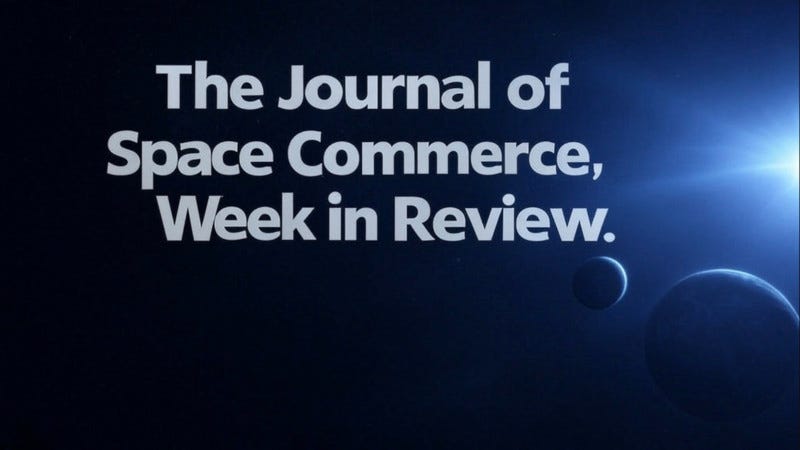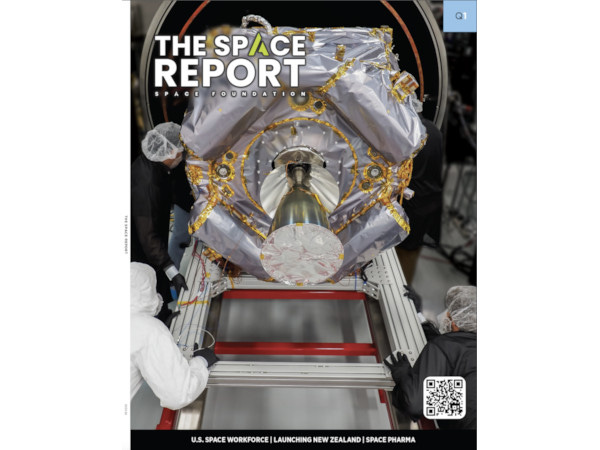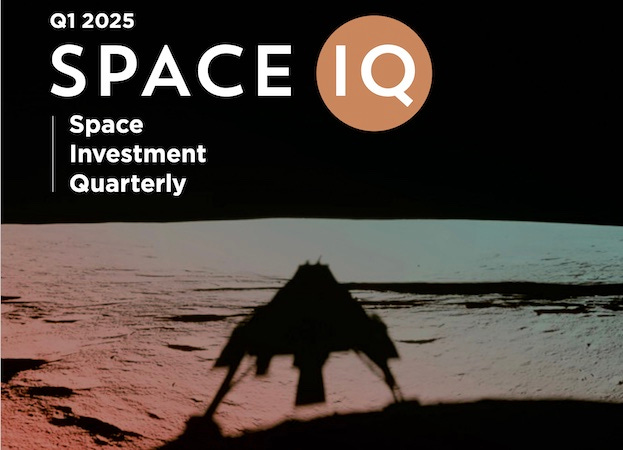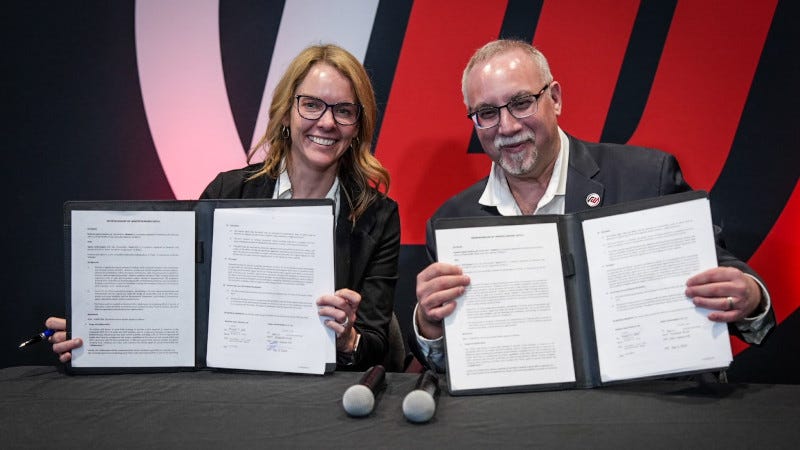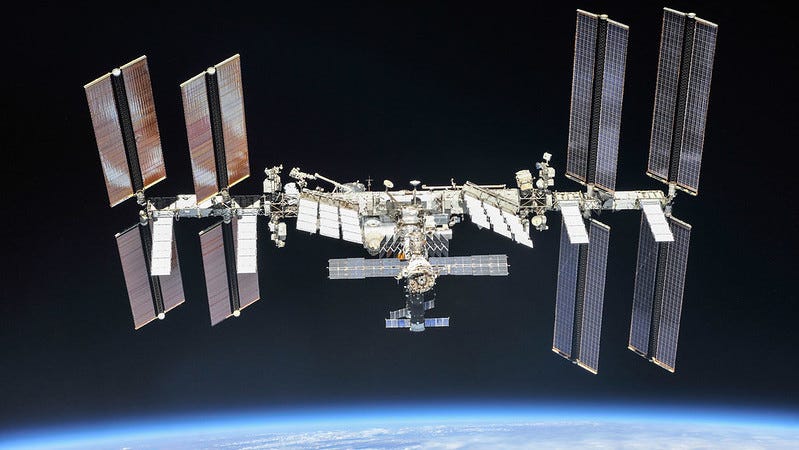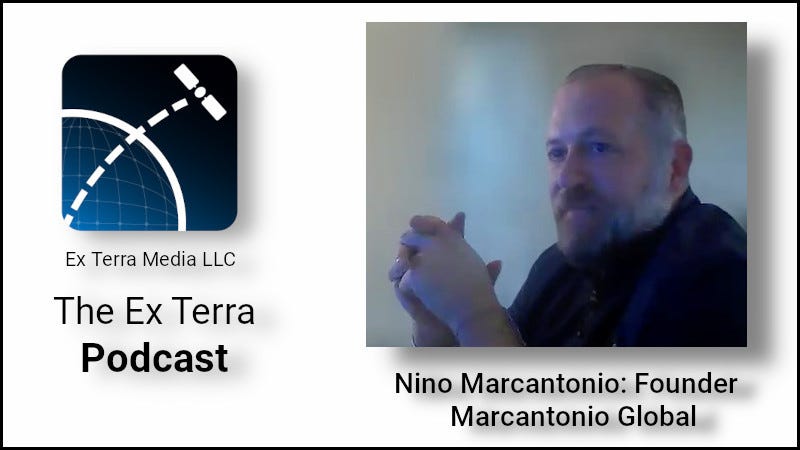Space employment and space investment are both on the rise. Here are some of the top stories from The Journal of Space Commerce this week.
The Space Report 2025 Q1, which shows space sector employment growth outpacing U.S. private sector growth, has been released by The Space Foundation. In the last decade, overall private sector employment increased 14.3%, while space sector employment increased 27%. Five-year growth for the industry has been even more significant, with employment increasing 18% from 2019 to 2024.
And these are good, high-paying jobs. The most recent year salary data, from 2023, shows the average private U.S. space industry salary was $135,000, a 3.1% increase over 2022 and nearly double the average private sector wage in the United States.
As the launch cadence increases globally, space companies are inundated with more data and an increased need to diversify their workforce — creating a growing demand for applicants with skills in computer science and data analysis.
The report also shows that the FAA licensed 157 commercial spaceflights in 2024 and estimates as many as 172 in 2025.
Next week on The Ex Terra Podcast, we'll talk at length about preparing the next generation of space workers with Dr. Don Platt, director of The Spaceport Education Center at the Florida Institute of Technology.
-0-
Another report released this week ... this one from Space Capital ... shows the first quarter of 2025 was marked by a total investment of $4.3 billion
According to the Q1 2025 Space Investment Quarterly report, investments during the period in 104 companies brought the cumulative private market equity investment to $347.9 billion since 2009.
The report also identifies industry trends that could have several significant implications for the space economy and related industries.
Among those trends is an increase in competition for SpaceX for orbital launch contracts. Chad Anderson, Managing Partner of Space Capital, said in a YouTube video presentation about the report that competitors like Blue Origin, Rocket Lab, and Stoke Space are likely to drive innovation and reduce costs in the launch market. This increased competition can lead to more frequent and affordable access to space, benefiting a wide range of industries reliant on satellite deployment and space-based services, according to the report.
"The company has really enjoyed a decade of very limited competition, but alternatives are finally starting to emerge. In January, Jeff Bezo's Blue Origin successfully reached orbit with their New Glenn vehicle. It is now halfway to being certified for national security missions. It is teed up for some of this national security money. Rocket Lab and Stoke Space were also selected to compete, alongside SpaceX, Blue Origin and ULA for National Security space launch contracts. These are billions of dollars, and more and more companies are entering that pool and competing for those dollars."
Other trends to watch, according to the report, are geopolitical shifts, including rising tensions between the U.S. and China; technological advances in geospatial artificial intelligence (GeoAI) and AI-driven technologies that are unlocking new capabilities in mapping, spatial intelligence, and precision positioning; and market consolidation and acquisitions.
Anderson said that a recession would be particularly challenging to the space economy, and in particular for startups.
"It's been a few very difficult years for fundraising in the financial markets for startups," Anderson said. "And so a recession at this point in time would be very difficult for a lot of companies. Government contracts could shrink, or there could be delays, which could impact companies which are dependent on defense and national security spending."
Overall, the report finds that the space economy is very dynamic and evolving rapidly. But with significant investments in infrastructure, distribution, and applications, the space sector continues to offer significant opportunities for innovation and growth.
-0-
Coming up, Redwire partners with ispace on CLPS missions, and Nino "Typhoon" Marcantonio on making connections with government customers. But right now, why not take a minute to become a paid subscriber to The Journal of Space Commerce Whether you’re a space professional or enthusiast, paid subscribers have first access to premium articles and podcasts focused on the new space economy. Just visit www.exterrajsc.com on Substack, and help keep The Journal of Space Commerce independent as we chronicle, cajole and, when necessary, critique the commercial space industry.
-0-
A memorandum of understanding was signed between Redwire and ispace-U.S. at the 40th Space Symposium. Under the MoU, the companies will jointly pursue commercial lunar exploration and science missions for the NASA Commercial Lunar Payload Services (CLPS) initiative and other customers.
The NASA CLPS contract is a multi-award indefinite delivery, indefinite quantity (IDIQ) pool of contracts with a cumulative maximum contract value of $2.6 billion through 2028.
Redwire is one of 14 prime contractors on the CLPS IDIQ contract, and together with ispace-U.S., the team will be pursuing future CLPS missions leveraging the proven ispace lunar lander. The APEX lunar lander is the company’s next-generation lander, incorporating lessons learned from the Hakuto-R lunar exploration program.
Mike Gold, president of Civil and International Space at Redwire, tells Ex Terra Media that the partnership promises significant outcomes.
"In the long term, we're not just going to go after programs, but going after a new lunar economy. Helium 3 has been gaining momentum, rare earth elements, there's just a lot of opportunities that five years ago, even a year ago we weren't even looking at or considering. So I'm very excited about the momentum generally with CLPS. You heard Jared Isaacman talk specifically about CLPS in his hearing, and I think we will see this administration continue to embrace and even do more with public-private partnerships that are so critical to why America is winning the global space race."
Gold said that the two companies are already looking specifically at at least one project for collaboration.
"CS-6 is the next CLPS opportunity for commercial entities to go to the Moon. This will be a mission to the south pole, and we are extraordinarily excited to team with ispace to help NASA and the world take advantage of this extraordinary opportunity."
With this strategic collaboration, Redwire and ispace-U.S. will be empowered to apply proven experience, expertise, and heritage to support future commercial lunar missions for government and private sector customers.
-0-
Startups RedPoint Oncology and Fourier are the newest recipients of the Technology in Space Prize, funded by Boeing and the Center for the Advancement of Science in Space (CASIS), manager of the International Space Station (ISS) National Laboratory.
Selected through the MassChallenge (Boston) startup accelerator program, these two companies will utilize the unique research environment available through the ISS National Lab to push the boundaries of scientific knowledge and advance their research and technology development.
RedPoint Oncology will leverage the accelerated disease progression of cancers in microgravity to test a new class of therapeutics that can treat cancers resistant to conventional treatments. Fourier will test the performance of its new radiation-shielding material in protecting sensitive electronic devices from the harsh conditions in space. Through the Technology in Space Prize, CASIS and Boeing intend to award RedPoint Oncology and Fourier more than $650,000 in total funding.
The startups join a growing community of researchers using the final frontier to explore new possibilities and demonstrate the potential of space-based research. Since the prize’s inception, more than $20 million has been awarded for more than 30 projects.
-0-
Blue Origin successfully completed its 11th human spaceflight for the New Shepard program. The crew included Aisha Bowe, Amanda Nguyễn (nWen), Gayle King, Katy Perry, Kerianne Flynn, and Lauren Sánchez, who brought the mission together.
The New Shepard spacecraft lifted off from central Texas at 9:30 AM Eastern time on Tuesday, and the capsule reached an apogee of 66 miles. The crew landed just after 8:40 am local time for a total duration of 10 minutes and 21 seconds.
Including this crew, New Shepard has now flown 58 people to space, including four people who have flown twice.
The spaceflight included the first all-female crew since Valentina Tereshkova flew alone aboard Vostok 6 in 1963.
-0-
Marcantonio Global is a company that with a mission to accelerate innovation in the defense sector by fostering collaboration between innovative technology companies and defense organizations. This week on The Ex Terra Podcast, I talked with Nino Marcantonio, the founder and CEO of Marcantonio Global about how the firm works with space companies to make the right connections within the U.S. Government.
With a focus on investment strategies, policy navigation, and market analysis for the rapidly evolving commercial space industry, their mission is to bridge the gap between cutting-edge technology and critical defense needs.
"I think that the lines between commercial space and the defense sector is blurring, with private innovators and innovations. If you're looking at rapid launch and surveillance that's been deployed to protect troops and national interest." Marcantonio said. "Some actors might use that as something nefarious, some actors might use that as crowd control. I think what we're seeing with SpaceX is absolutely something that, where real innovation comes in. These launches that they're doing, that they're catching the payload is absolutely amazing. You have all sorts of other players. HawkEye 360, Responsive Space Solutions, you've got Starlink helping Ukraine. That was an incredible thing, to help out a nation that was in need. It changed the character of the war. When you're able to use that kind of capability it can change the war outcome, which is really incredible."
Nino Marcantonio is the founder and CEO of Marcantonio Global.
-0-
And those are some of the top stories we covered for you on The Journal of Space Commerce this week. You can get daily updates on space commerce by subscribing to The Journal of Space Commerce on Substack at www.exterrajsc.com. And please consider becoming a paid subscriber. Whether you’re a space professional or enthusiast, paid subscribers have first access to premium articles and podcasts focused on the new space economy. Just visit exterrajsc.com and help keep The Journal of Space Commerce independent as we chronicle, cajole and, when necessary, critique the commercial space industry.
You might have missed:




